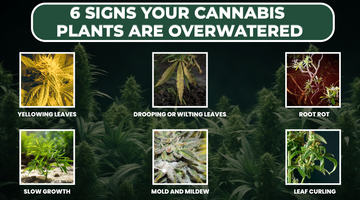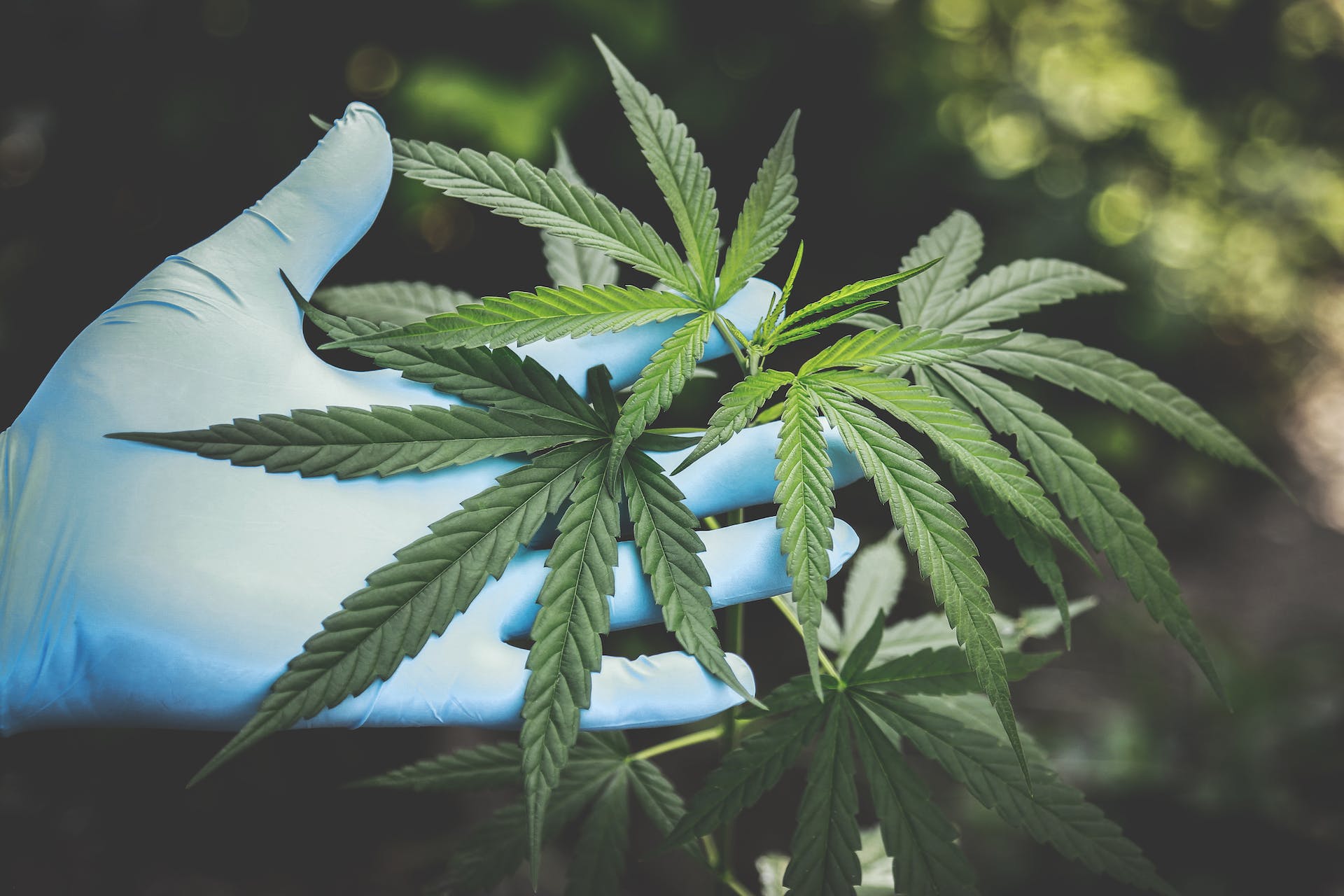7 Surprising Health Benefits of Hemp Seeds: Nature's Nutritional Powerhouse
by duncan Winter on Jul 26, 2024

Did you know that tiny hemp seeds pack a powerful punch of nutrition and health benefits? Often overlooked, hemp seeds, which come from the Cannabis sativa plant, are emerging as a superfood. Despite their origin, they do not have psychoactive effects and are celebrated for their rich nutritional profile, including protein, fiber, and essential fatty acids.
In this blog, We'll go into detail about the numerous health benefits of cannabis seeds and the reasons you should think about consuming them.
What Are Hemp Seeds?
The psychoactive ingredient in marijuana, THC, is not present in hemp seeds, which are derived from the Cannabis sativa plant. This means they can be consumed without any mind-altering effects. These seeds are small, brown, and packed with a dense nutritional profile.
Nutritional Profile
Packed full of essential fatty acids, fiber, and protein, hemp seeds are a nutritional powerhouse. They also contain a variety of vitamins and minerals that are necessary for maintaining overall health. Let's examine each of the specific benefits in more detail:
Nutritional Benefits of Hemp Seeds
1. Protein Powerhouse
Hemp seeds contain 9.46 grams of protein for every 30 grams, making them a great source of protein. Because they have all nine essential amino acids—which are necessary for tissue growth and repair—they are a complete protein source. They are especially advantageous for vegans and vegetarians because of this. Additionally, they are rich in arginine, an amino acid that promotes heart health.
2. Healthy Fats
Hemp seeds are a great source of essential fatty acids, including omega-3 and omega-6 fatty acids. These fats are critical for preserving heart health, lowering inflammation, and promoting long-term health in general. The ratio of Omega-3 to Omega-6 in the diet is often thrown off by current eating habits; hemp seeds help correct this.
3. Fiber-Rich
Hemp seeds, especially with their hulls intact, are high in fiber. For the health of the digestive system, blood sugar regulation, and weight management, dietary fiber is crucial. Eating meals high in fiber can help keep the digestive system in good condition and stave off problems like constipation.
4. Vitamins and Minerals
Hemp seeds are a great source of potassium, magnesium, phosphorus, vitamin E, and other vitamins and minerals. The body needs these nutrients to continue operating normally. Zinc, iron, and B vitamins like thiamine, riboflavin, niacin, and folate are also present in hemp seeds.
Health Benefits of Hemp Seeds
Brain Protection
Hemp seeds contain compounds with antioxidant effects, offering neuroprotective and anti-inflammatory properties. These benefits may extend to potential protection against neurological conditions like Parkinson’s and Alzheimer’s diseases, making hemp seeds a valuable addition to a brain-healthy diet.
Heart Health Booster
Omega-3 fatty acids found in hemp seeds reduce the incidence of cardiac arrhythmias and illness. Additionally, the amino acid arginine, found in hemp seeds, converts to nitric oxide in the body, which is essential for maintaining healthy blood vessels and regulating blood pressure.
Anti-Inflammatory Properties
Omega-3 and Gamma-Linolenic Acid (GLA), which are abundant in hemp seeds, have anti-inflammatory qualities. These compounds can help reduce inflammation, potentially aiding in the management of chronic diseases like type 2 diabetes and arthritis.
Skin Health Improvement
The anti-inflammatory compounds in hemp seeds can help with conditions like acne and atopic dermatitis. The high Omega-3 content also contributes to reducing acne symptoms, promoting healthier skin.
Rheumatoid Arthritis Relief
Hemp seed oil has anti-rheumatic effects and may help reduce symptoms of rheumatoid arthritis. This benefit makes it a natural option for managing the discomfort associated with this condition.
Nutritional Profile Breakdown
Here’s a detailed breakdown of the caloric and nutrient content in 3 tablespoons of hemp seeds:
- Calories: 170
- Protein: 9.46 grams
- Fat: 14.6 grams (including 1.38 grams of saturated fat)
- 2.6 grams of carbohydrates (consisting of 1.2 grams of fiber and 0.45 grams of sugar)
- Rich in iron, zinc, phosphorus, potassium, magnesium, vitamin E, and many B vitamins are the minerals and vitamins found here.
How to Incorporate Hemp Seeds into Your Diet
Including hemp seeds in your diet is easy and flexible. Here are a few useful pointers:
- For an added protein boost, sprinkle them over your yogurt or porridge.
- Blend them into smoothies for added nutrition.
- Add them to salads for a crunchy texture.
- Add them to baking recipes to boost the nutritional content.
Recipes:
- Hemp Milk: Combine one cup of hemp seeds with three cups of water, filter, and serve.
- Hemp Seed Cookies: Add hemp seeds to your favorite cookie recipe for a nutritious twist.
Risks and Considerations
While hemp seeds are safe for most people, it’s important to consider the minimal THC content, which could potentially cause issues in drug tests. Additionally, be aware of the regulatory standards in your country regarding hemp products.
In conclusion, hemp seeds have a wealth of health advantages, ranging from strengthening the heart and brain to easing skin ailments and decreasing inflammation. They are a nutrient-dense powerhouse that you can simply include in your regular diet. For those looking to enhance their nutrition, hemp seeds are an excellent choice.
Ready to experience the benefits of hemp seeds for yourself? Visit Higher Quality Seed Corp to explore our range of hemp seed products and start incorporating this superfood into your diet today!
FAQs
1- What are the uses of cannabis seeds?
Cannabis seeds are used for their nutritional benefits, in cooking, and for making hemp oil.
2- What are the nutrients in cannabis seeds?
The health benefits of Cannabis seeds are rich in protein, essential fatty acids, fiber, and various vitamins and minerals.
3- How many hemp seeds should I eat daily?
The recommended serving is about 3 tablespoons or 30 grams per day.
4- How much protein is in cannabis seeds?
Cannabis seeds contain approximately 9.46 grams of protein per 30 grams.
5- What is the healthiest way to eat hemp seeds?
The healthiest way to eat hemp seeds is to incorporate them into your daily diet by adding them to cereals, smoothies, salads, or baked goods.
6-How many hemp seeds should a person eat a day?
A person should consume about 3 tablespoons or 30 grams of hemp seeds per day to gain their nutritional benefits.
7- Is it okay to eat hemp seeds every day?
Yes, eating hemp seeds regularly is safe, but because of their high fat content, it's best to do so in moderation.
8- How can hemp seeds affect the body?
Because of their high nutritious content, hemp seeds help treat skin issues, lower inflammation, and strengthen heart health.
9- Are chia seeds or hemp seeds better?
Both seeds are healthy, but hemp seeds have more protein than other seeds, so they're a better option for people who want to increase their protein intake.





